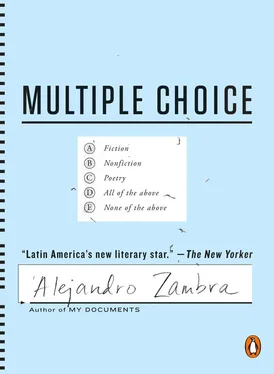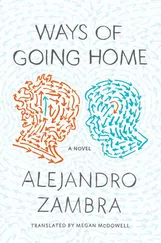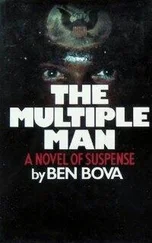B)
coming
coming
coming
C)
lost
lost
walking
D)
lost
not
not
E)
sick
dead
almost
50. Last night I dreamed you were a and I was a and we were together.
A)
dog
dog
barking
B)
leg
leg
dancing
C)
tooth
tooth
biting
D)
nun
priest
sleeping
E)
ghost
ghost
always
51. You were a bad son, you write.
You were a bad father, you write.
You are alone, you write.
A)
so
so
so
B)
of that
of that
of that
C)
but
but
but
D)
because
because
because
E)
and still
and still
and still
52. You were a bad son, so you write.
You were a bad father, so you write.
You are alone, so you write.
A)
letters
letters
letters
B)
novels
stories
poetry
C)
badly
badly
badly
D)
your will
your will
your will
E)
a lot
a lot
a lot
53. You were a bad son, but.
You were a bad father, but.
You are alone, but.
A) people vote for you
people vote for you
people vote for you
B) I love you
I love you
I love you
C) I’m not your father
I’m not your son
that’s not my problem
D) you know it
you know it
you know it
E) no one knows
no one knows
no one knows
54. You were a bad son, but.
You were a bad father, but.
You are alone, but.
A) you’re happy
you’re happy
you’re happy
B) it’s so hard to be a son
it’s so hard to be a father
we are all alone
C) a good soldier
a good Christian
Jesus is with you
D) your backhand is amazing
you lent me sixty bucks
man, you have a good time
E) your father died so long ago
your son died so long ago
you want to be alone
In exercises 55 through 66, mark the answer that corresponds to the sentences or paragraphs that can be eliminated because they either do not add information or are unrelated to the rest of the text.
55.
(1) For years, no one came to visit my grave.
(2) I didn’t expect anyone to, if I’m being honest.
(3) But today a woman came and left me flowers.
(4) Four red roses, two pink ones, and one white.
(5) I don’t know who she is; I don’t remember ever having met her.
(6) I don’t think she knows I was a shitty person.
A) None
B) 2
C) 4
D) 5
E) 6
56.
(1) There are hamburgers in the refrigerator.
(2) There’s some lettuce and mustard, too.
(3) I went to the beach with the kids.
(4) It’s normal, they’re my kids too.
(5) I’m afraid of you.
(6) And they’re afraid of you too.
(7) And that, too, is normal.
A) None
B) 1 and 2
C) 2
D) 4
E) 7
57.
(1) A curfew is a regulation prohibiting free circulation in public within a determined area.
(2) It tends to be decreed in times of war or popular uprising.
(3) The dictatorship imposed one in Santiago, Chile, from September 11, 1973, until January 2, 1987.
(4) One summer evening my father went out walking with no destination in mind. It grew late, and he had to sleep at a friend’s house.
(5) They made love, she got pregnant, I was born.
A) None
B) 5
C) 1, 2, and 3
D) 4 and 5
E) 2
58.
(1) I didn’t want to talk about you, but it’s inevitable.
(2) I’m talking about you right now. And you’re reading this, and you know it’s about you.
(3) Now I am words that you read and wish did not exist.
(4) I hate you.
(5) You would like to have the power of a censor.
(6) So no one else would ever read these words.
(7) I hate you.
(8) You ruined my life.
(9) Now I am words you cannot erase.
A) None
B) A
C) B
D) C
E) D
59.
(1) They found the breast cancer when she was sixty-five years old.
(2) They had to remove one of her breasts.
(3) Not long after that, the Alzheimer’s started.
(4) She didn’t recognize her children, or her grandchildren, not anyone.
(5) She didn’t even recognize me.
(6) But she never forgot she was missing a breast.
A) None
B) 1
C) 2
D) 4
E) 5
60.
(1) I only saw my mother’s father three times in my life. It’s unclear how many children he had: more than twenty, fewer than thirty, according to my mother’s calculations.
(2) The first time I saw him, he came to our house at night, when we were about to go to bed. He introduced us to Verónica, his youngest daughter. She was four or five years old, younger than I was.
(3) “Say hi to your aunt Verito,” he said to me and my sister. And then: “I’ve got your birthdays written down. I never forget my grandchildren.”
(4) They left around midnight, driving away in a Renoleta. It was cold. My mother had to lend Verito one of my sister’s sweaters.
(5) “They’ll never give that sweater back,” my mother told my sister over breakfast, containing her rage, or maybe just resigned.
(6) The second time I saw him, some time later, was on my mother’s birthday.
(7) She was happy. I remember that absurd and true sentence: He will always be my father.
(8) The last time I saw him was in a hospital. He shared a room with three other dying old men. My mom told me to go in and see him, to say good-bye.
(9) I looked at the old men; all of them looked alike. I tried to recognize my mother’s father, but I couldn’t. I stared at them for a while, and then I left.
A) None
B) 3
C) 4 and 5
D) 7
E) 8 and 9
61.
(1) While we’re making tea, Mariela tells me that when she was in school, there was a pregnant nun.
(2) I ask her when, where. “At Mater Dei. I was really little, in the fourth grade.”
(3) Mariela’s eyes are brown. For a second, I manage to picture her face when she was little.
(4) “They kept her hidden away, but we saw her once. They asked us to keep the secret.”
(5) I ask her if they kept the secret. “I don’t know about my friends,” she replies, “but I did.”
(6) “You’re the first person I’ve told,” she says.
(7) “Thirty years later?”
(8) “Yes, thirty,” she says.
(9) She looks down at her hands. I also look at her hands.
(10) She pinches or caresses a breadcrumb. She lights a cigarette.
(11) “No,” she says then. “Thirty-five.”
A) None
B) 3
C) 9
D) 10
E) 11
62.
(1) In Chile, no one says hi to each other in elevators. You get in and pretend you don’t see anyone, you pretend you’re blind. And if you say hello, people look at you strangely, sometimes they don’t even return the greeting. You share your fragility in silence, like a sacrifice.
(2) How hard would it be to say hello, you think, while the door opens on an in-between floor. There are already nine, ten people, and no one else can fit. Someone’s headphones are playing a song that you know and like.
(3) It would be easier to embrace the woman standing there in front of you. What you and she share is the effort to avoid touching each other.
(4) You remember getting punished once when you were little, maybe eight years old: you’d been caught in the girls’ bathroom swapping kisses with a little classmate. It wasn’t the first time you and she had kissed each other. It was a game, a kind of dare. A teacher saw you, scolded you, brought you to the principal’s office.
Читать дальше












